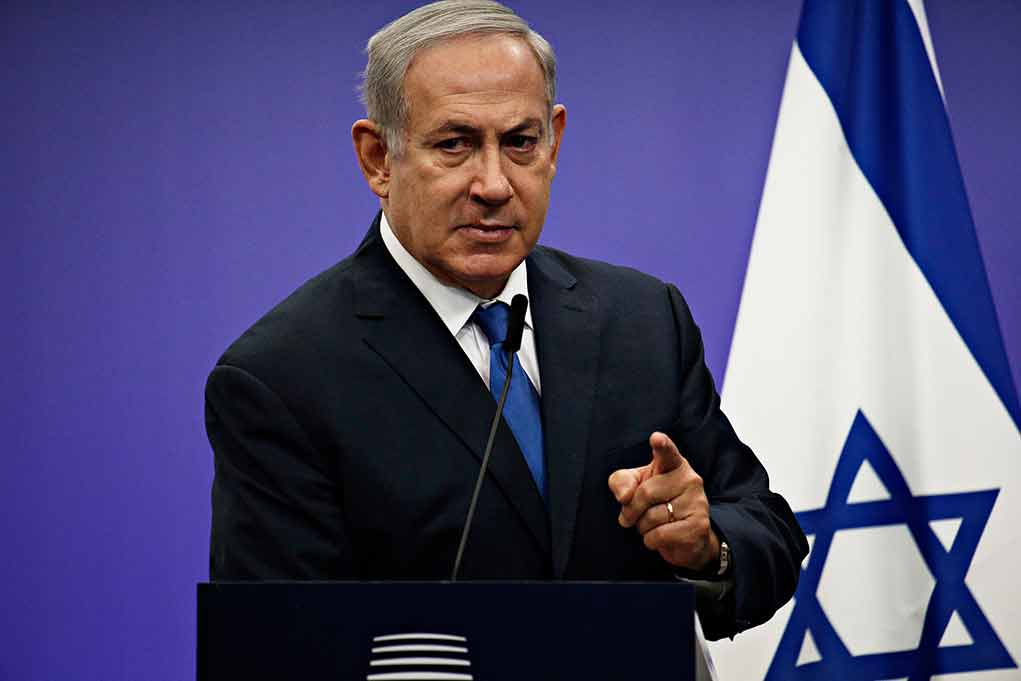
Netanyahu drops bombshell accusation that Iran ordered both assassination attempts against President Trump, adding a shocking new dimension to the already tense Middle East standoff.
Key Takeaways
- Israeli Prime Minister Netanyahu claims Iran orchestrated two assassination attempts against President Trump through proxies and intelligence operations
- Netanyahu used these allegations to justify Israel’s recent missile strikes against Iran’s nuclear facilities
- President Trump rejected an Israeli plan to assassinate Iran’s Supreme Leader Ayatollah Ali Khamenei, viewing it as potentially destabilizing
- U.S. officials have not confirmed Iran’s direct involvement in the 2024 assassination attempts in Pennsylvania and Florida
- Iran’s President Masoud Pezeshkian has explicitly denied any involvement in plots against Trump
Netanyahu Claims Iran Targeted Trump Through Proxies
In a stunning revelation during a Fox News interview, Israeli Prime Minister Benjamin Netanyahu claimed that Iran attempted to assassinate President Donald Trump twice through proxies and intelligence operations. Netanyahu emphasized that Iran views Trump as “enemy number one” due to his hard-line stance against their nuclear program, particularly his withdrawal from the 2015 Iranian nuclear agreement that had relaxed sanctions against the regime. These allegations add a significant new dimension to the already tense relationship between Iran, Israel, and the United States.
Netanyahu made these explosive claims while defending Israel’s recent missile strikes on Iranian military installations. When questioned by Fox News anchor Bret Baier about evidence for Iran’s direct involvement in the Trump assassination attempts, Netanyahu doubled down on his assertions. The Israeli Prime Minister’s statements align with Trump’s suggestions from September that Iran might be behind the attempts on his life, though U.S. officials have not publicly confirmed this connection.
Netanyahu Makes Explosive Claim That Iran Was Behind the Two Assassination Attempts Against Trump in Fox News Interview https://t.co/Dm9GPzRzPl
— Mediaite (@Mediaite) June 15, 2025
Trump Rejects Israeli Assassination Plan Against Iranian Leader
In a significant development that underscores the complex dynamics at play, President Trump reportedly rejected an Israeli plan to assassinate Iran’s Supreme Leader, Ayatollah Ali Khamenei. Trump viewed the proposal as potentially destabilizing for the Middle East region at a critical time. When questioned about this decision, Netanyahu neither confirmed nor denied the existence of such a plan, instead emphasizing Israel’s sovereignty in its security decisions.
“But I can tell you, I think that we do what we need to do, we’ll do what we need to do. And I think the United States knows what is good for the United States,” said Benjamin Netanyahu.
Despite rejecting the assassination plan, Trump has issued stern warnings to Iran against any retaliation against American targets. His administration has made it clear that any aggressive actions would be met with overwhelming force, while simultaneously pursuing diplomatic avenues when possible. This balanced approach reflects Trump’s broader foreign policy strategy of projecting strength while seeking opportunities for negotiation and de-escalation.
Watch @IsraeliPM Netanyahu’s interview with Fox News on how Israel foiled the Iranian regime’s attempt to exterminate us with nuclear bombs and ballistic missiles.
While defending itself, Israel defends the region & the world from nuclear terrorism. https://t.co/SgibGlQNGZ via…— 🇮🇱 Reuven Azar (@ReuvenAzar) June 15, 2025
Evidence and Denials
The Biden Department of Justice previously charged an Iranian operative, Farhad Shakeri, in a separate plot to assassinate Trump, but this was unrelated to the 2024 attempts mentioned by Netanyahu. U.S. officials have not publicly established a direct link between Iran and the incidents in Butler, Pennsylvania, and Palm Beach, Florida. The Secret Service increased security for Trump in July following intelligence about a potential assassination plot during a Pennsylvania rally.
“These people who chant, death to America, tried to assassinate President Trump twice, kill 241 of your Marines in Beirut, killed and injured thousands of American soldiers in Afghanistan and Iraq, try to bomb a restaurant in Washington D.C., chant death to America, burn the American flag, do you want these people to have nuclear weapons and the means to deliver them to your cities? Of course not. So we’re defending ourselves, but we’re also defending the world,” said Benjamin Netanyahu.
Iran’s President Masoud Pezeshkian has categorically denied any involvement in assassination plots against Trump. This denial comes amid escalating tensions following Israel’s strikes on Iranian military installations, which Netanyahu justified as necessary to prevent Iran from developing nuclear weapons. These conflicting narratives highlight the information warfare dimension of the ongoing Middle East conflict, with each side attempting to shape international perception and justify their actions.
Strategic Implications for U.S. Policy
President Trump’s approach to the Iran-Israel conflict reflects his broader foreign policy philosophy of strength paired with strategic restraint. He has expressed optimism about a potential deal between Iran and Israel while acknowledging the possibility of continued conflict. Trump has highlighted his past successes in de-escalating international tensions, including conflicts between India and Pakistan, as evidence of his diplomatic capabilities.
“If we are attacked in any way, shape, or form by Iran, the full strength and might of the U.S. Armed Forces will come down on you at levels never seen before,” said Donald Trump.
Among Trump’s allies, there are diverging views on the extent of U.S. support for Israel. Some advocate for restraint and diplomatic solutions, while others, like GOP Senator Lindsey Graham, suggest that if diplomacy fails, the U.S. should support Israel militarily against Iran’s nuclear program. This debate reflects broader questions about American foreign policy priorities and the balance between supporting allies and avoiding unnecessary conflicts that drain American resources and endanger American lives.




